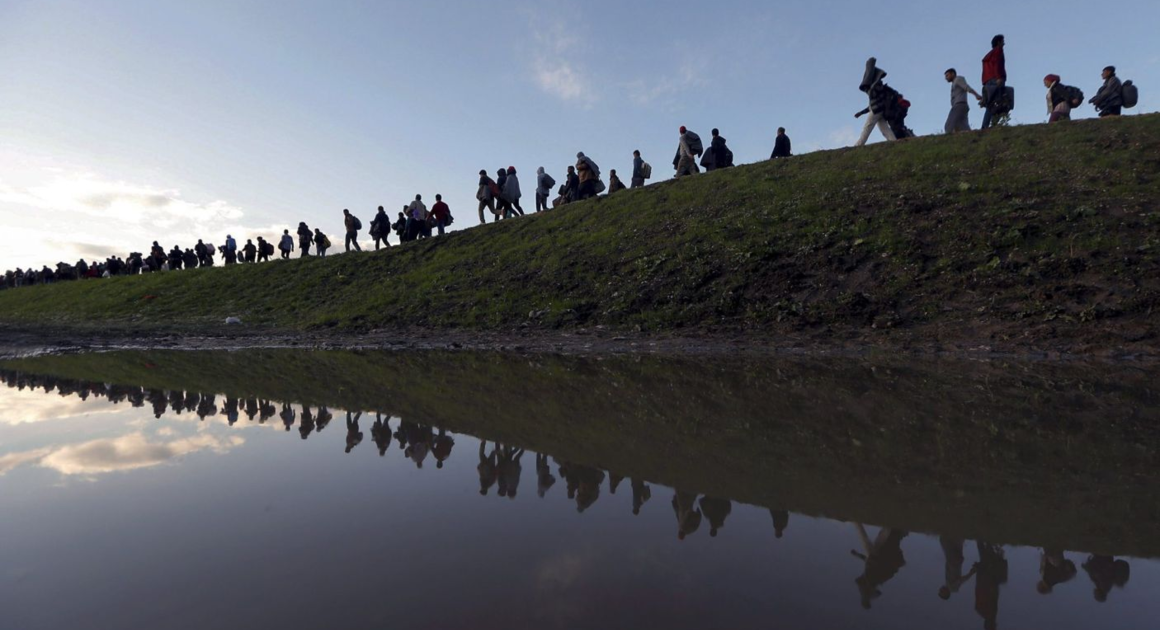
Migration Dialogues on Gaps and Emerging Challenges: The Impact of our Evolving Climate on Migrants
Feb 24, 2022
- Read this in:
- en
PSI participated in the fourth Round Table consultation in the run up to the International Migration Review Forum this May.
The UN Migration Network is organizing a dialogue series from January through April this year to help shape the agenda and contents of the four roundtables of the International Migration Review Forum (IMRF 2022) of the UN Global Compact on Migration.
PSI Migration Programme Officer, Genevieve Gencianos, delivered PSI’s intervention at this webinar on 23 February.
“We need to understand climate migration, not in isolation, but with its complex interlinkages with social, political and economic factors, including in the context of the covid pandemic and other crises. This is crucial so we can build an approach that is people-centered, gender-responsive and grounded on sustainable development and the Sustainable Development Goals (SDGs). PSI’s response to these interlinking challenges is rooted on three demands: climate justice, human rights, and quality public services.”
Read her full intervention below
Climate Justice.
This is where workers, trade unions and civil society are joined in concerted efforts to demand
Equity and justice in addressing the climate crisis.
This means holding rich countries who have contributed the most greenhouse gas emissions accountable for causing the problem of climate change for which the poor in developing countries are paying heavily, sometimes with their lives.
We continue to engage in social dialogue and advocacy for a just and equitable transition for all workers affected by loss and damage from climate change, in moving towards low-carbon energy production and other climate change response measures.
Human rights above all else.
There must be fundamental respect for human rights and humanitarian law in dealing with migration, mobility, forced displacement, relocalisation and all measures dealing with the impact of the climate crisis on peoples and communities.
There must be fundamental respect for human rights and humanitarian law. Whether the person referred to is a migrant, a refugee or an internally displaced person (IDP) and whose movement or displacement was impacted by or a result of climate change, she or he is entitled to the full protection of her/his human and labour rights.
We need to strengthen the existing normative framework on migrant workers. Towards this, we must continue to promote ratification and effective implementation of the UN and ILO Conventions on Migrant Workers and other international labour standards.
We call on all states to uphold the UN Convention on Refugees, and demand for a fair- sharing of responsibility in receiving and hosting refugees.
We remind states hosting internally displaced persons (IDPs) to adhere to the UN Guiding Principles on Internal Displacement.
And as provided for in the GCM, provide more rights-based legal pathways to migration while preserving the integrity of the asylum system.
Quality Public Services
We will hardly survive this climate crisis if we do not provide quality and inclusive public services.
We have seen in the pandemic, disasters and conflicts how essential it is for public goods to remain available, accessible and universal.
Migration should not be our core solution for adaptation because not everyone wants to migrate, to be separated from their land, culture and livelihood. Often, it is the poorest and most vulnerable who are not able to migrate, or would not want to migrate. Our core adaptation strategy must first and foremost be about allowing people to stay, to adapt and build resilience.
Investing in public services is the best strategy for societies, displaced communities and host communities to adapt, build resilience, and pursue equitable and sustainable development.
The provision of public goods and services essential to our lives must not be left to the whims of the market. We must continue to fight privatization and put people over profit.
For developing countries most impacted by the climate crisis, integrate loss and damage support and adaptation assistance into their public services, with the overall goal of preventing displacement and humanitarian crises and eradicating poverty, rather than reacting to them.
Public service workers are at the frontlines of dealing with the impacts of the crisis. We need to ensure safety, decent work, fair remuneration and social protection for all workers.
And finally, to protect and defend the human and trade union rights of all workers, including migrant and refugee workers.